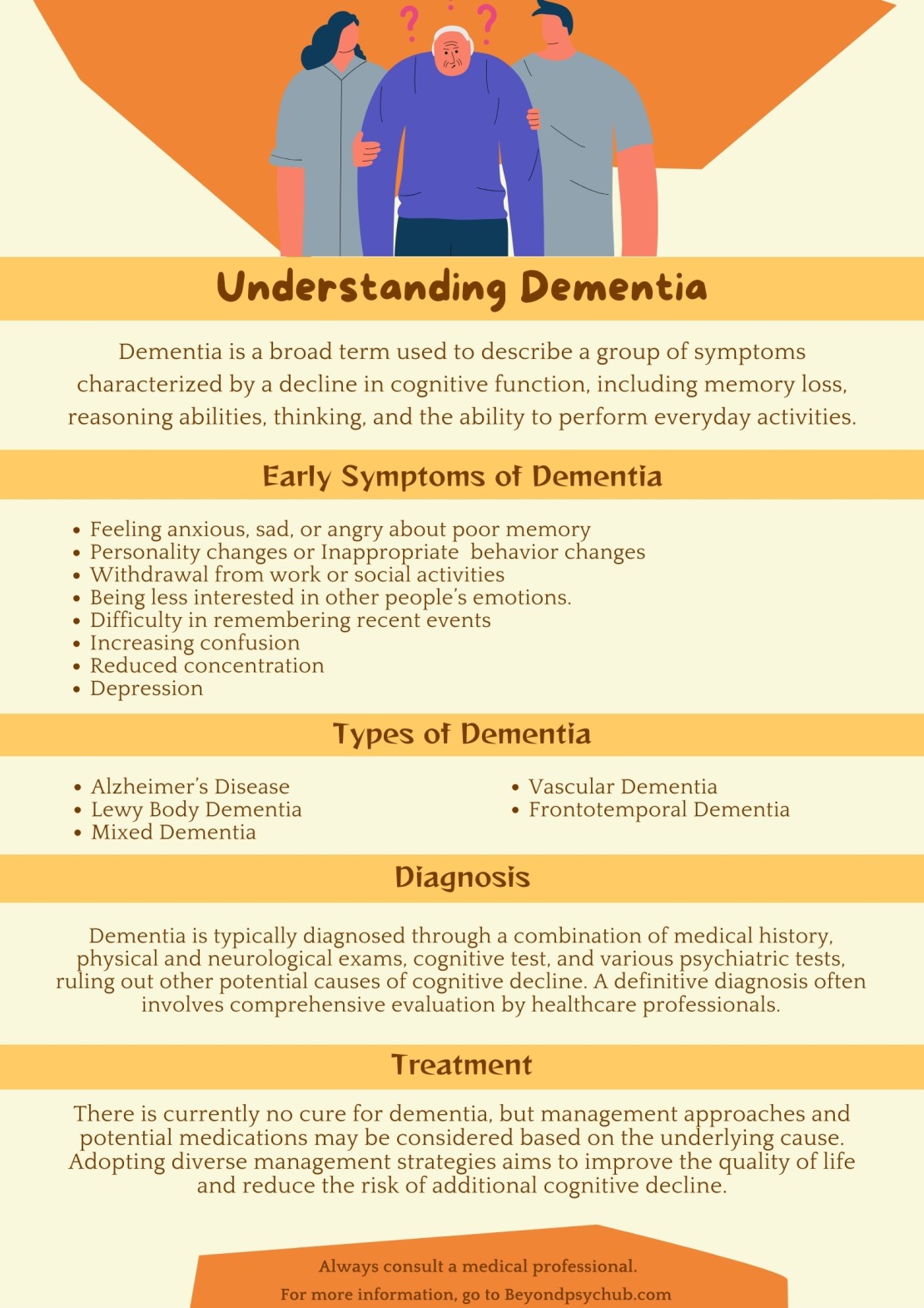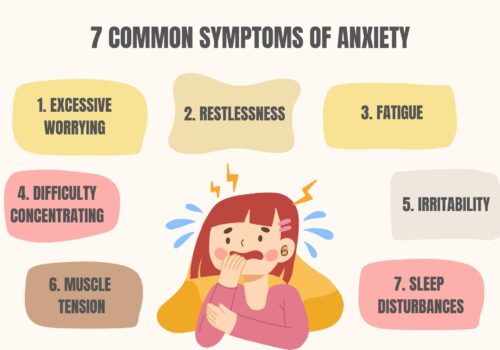Dementia is a medical condition involving several cognitive impairments that affect memory, thinking, language, problem-solving, and one’s social abilities. While Alzheimer’s is usually the cause of the condition, several other diseases can cause dementia.
Understanding Dementia
According to the World Health Organization, nearly 55 million people have dementia worldwide, with 10 million new cases every year. Considered a syndrome, dementia gradually destroys nerve cells, damaging the brain over time. This leads to severe cognitive impairments far worse than the decline of biological ageing. Though one’s consciousness is not affected, dementia has profound psychological ramifications that affect a person’s quality of life. The rapid cognitive decline in dementia is typically preceded by mood changes, loss of emotional control, behavioral shifts, depression, and demotivation.
Dementia, being extremely complex and grossly misunderstood, often leads to stigmatization of the condition. It is often attributed to an inadequate response to ageing, which is why, in most cases, a person with dementia suffers alone, remains undiagnosed, and is neglected. Some of the main factors of dementia are:
- Cognitive Impairment: Dementia primarily manifests as cognitive impairment, affecting memory, language, problem-solving, and attention.
- Progressive Condition: Dementia is typically a progressive condition, with symptoms worsening over time.
- Not a Normal Part of Aging: While memory and cognitive decline can occur with age, dementia is not a normal part of the ageing process.
Common Signs and Symptoms of Dementia
The symptoms of dementia are usually exhibited in stages where early signs may often be written off as typical ageing symptoms, such as poor memory, lack of sleep, stress, or other conditions. Mood and behavioral changes in dementia can begin much before the memory loss occurs, with symptoms worsening over time. Sooner or later, people with dementia will require assistance to help with their daily activities. Common symptoms include:
- Memory Loss: Individuals with dementia often struggle with short-term and long-term memory loss. They may need to remember recent events, important dates, or even the names of close family members.
- Disorientation: People with dementia may become disoriented and confused about their location, time, or surroundings. For example, while going out for a walk, a person might even get lost in well-known surroundings.
- Language Difficulties: Difficulty finding the right words, speaking clearly, or understanding written or spoken language is common in dementia. Such problems can manifest while performing routine tasks where common words or names are quickly forgotten.
- Impaired Judgment and Problem-Solving: Individuals may make poor decisions, have difficulty solving problems, or exhibit impaired judgment.
- Changes in Mood and Behavior: Emotional changes such as irritability, mood swings, and personality alterations are common in dementia. People with dementia are often depressed because of their inability to remember events, incidents, and things related to performing tasks in daily life.
- Decline in Motor Skills: As dementia progresses, motor skills, including the ability to perform everyday tasks, can deteriorate. For example, you may start misplacing objects at home or putting them in strange places. However, it’s important not to confuse this with absent-mindedness or false dementia symptoms, as these may be caused by other factors such as stress or lack of sleep.
- Inappropriate Behavior: People with dementia often display paranoia or become hostile and suspicious. Hallucinations are also a symptom of dementia
Dementia Symptoms
- Feeling anxious, sad, or angry about poor memory
- Personality changes or behavior changes
- Inappropriate behavior
- Withdrawal from work or social activities
- Being less interested in other people’s emotions.
- Difficulty in remembering recent events
- Increasing confusion
- Reduced concentration
- Depression
- Loss of ability to do everyday tasks.
Causes and Types of Dementia
Dementia arises from the damage or loss of nerve cells, disrupting connections to the brain, and the symptoms vary based on the specific part of the brain that is affected. This is why individuals can be affected in different ways. When diagnosing dementia, it needs to be noted that certain diseases, vitamin deficiencies, subdural bleeding, metabolic problems, immune disorders, or reactions to medication can also cause dementia. In such cases, the dementia can be easily treated. However, the leading causes and types of dementia are:
Alzheimer’s Disease: Alzheimer’s disease is the most prevalent cause of dementia. It involves the accumulation of abnormal protein deposits in the brain, leading to cognitive decline.
Vascular Dementia: This type of dementia occurs due to impaired blood flow to the brain, often resulting from strokes or other vascular issues.
Lewy Body Dementia: Lewy body dementia is characterized by abnormal protein deposits in the brain, leading to cognitive and motor dysfunction.
Frontotemporal Dementia: This type of dementia primarily affects the frontal and temporal lobes of the brain, leading to changes in behavioral, personality, and language.
Mixed Dementia: Autopsy studies of the brains of people aged 80 and older who had dementia indicate that many had a combination of several causes. People with mixed dementia can have Alzheimer’s disease, vascular dementia, and Lewy body dementia. Studies are ongoing to determine how having mixed dementia affects symptoms and treatments.
Other Causes: Dementia can also be caused by Huntington’s disease, Parkinson’s, traumatic brain injury (TBI), and Creutzfeldt-Jakob disease. Studies have also found that clinical hypothyroidism can cause dementia.
Diagnosing Dementia
Diagnosing dementia requires a thorough assessment by a healthcare professional, typically a neurologist or geriatric specialist. The diagnostic process may include the following:
- Medical History: The doctor will review the patient’s medical history, including their symptoms and family history.
- Physical and Neurological Exams: A physical and neurological examination can help identify any potential causes of cognitive impairment. Tests of the senses, movement, heart, and lung function may also be considered to rule out other underlying conditions.
- Cognitive Testing: Cognitive tests, like the Mini-Mental State Examination (MMSE), assess memory, attention, and problem-solving skills.
- Imaging Tests: Brain imaging, such as MRI or CT scans, can reveal structural abnormalities in the brain to rule out brain tumors. Some scans can also determine the type of dementia and detect patterns of tissue loss to differentiate between the different types.
- Psychiatric Assessment: A psychiatric evaluation can identify treatable disorders, such as depression. It can also help manage psychological symptoms, such as anxiety or hallucinations, that may occur in dementia.
- Blood Tests: Blood tests may be conducted to rule out underlying medical conditions that could contribute to cognitive decline.
Treatment and Management
There is no specific treatment or cure for dementia except management and possible medications, depending on the cause. Drugs prescribed for Alzheimer’s are also considered to help with symptoms of other types of dementia. The best way to manage dementia is by adopting various management strategies to help improve the quality of life and reduce the risk of further cognitive decline.
Behavioral and Psychological Therapies: Cognitive-behavioral therapy and counseling can help individuals and their caregivers manage emotional and behavioral challenges.
Lifestyle Modifications: A healthy lifestyle, including a balanced diet, regular exercise, and social engagement, can slow the progression of some types of dementia. Other forms of lifestyle management can include:
- Avoid smoking
- Be socially and physically active
- Engage your mind
- Indulge in self-care
- Get your vitamins
- Eat a healthy diet
- Get regular checkups for cholesterol, blood pressure and diabetes
- Exercise to lose weight
- Get adequate sleep
- Treat hearing problems
Family Support: Supportive care and assistance with daily activities by family members or caregivers can help individuals with dementia maintain their independence for as long as possible. A caregiver plays a significant role in helping those with dementia live a more dignified existence by catering to their needs and well-being.
Dementia can be an extremely challenging condition for both patients, families, and caregivers. Ongoing research gives hope for new strategies and therapies to manage the condition. Still, beyond that, it is understanding, awareness, and compassion from all concerned that can help a person with dementia live a better quality of life.
Dementia Infographic

















